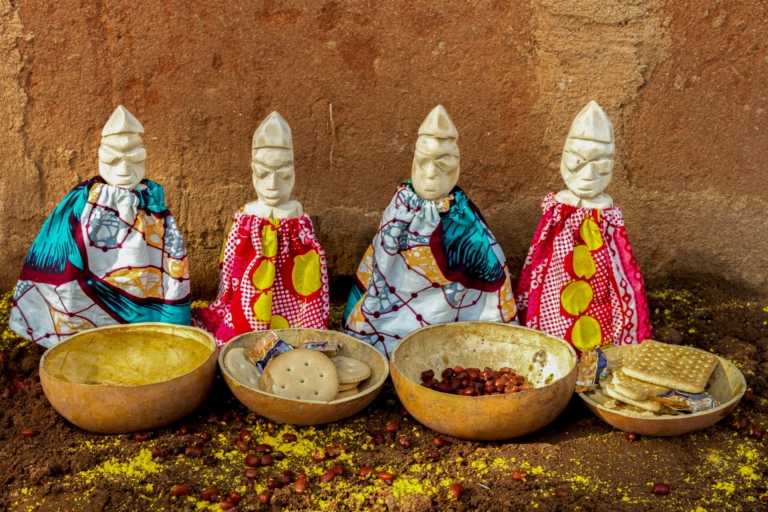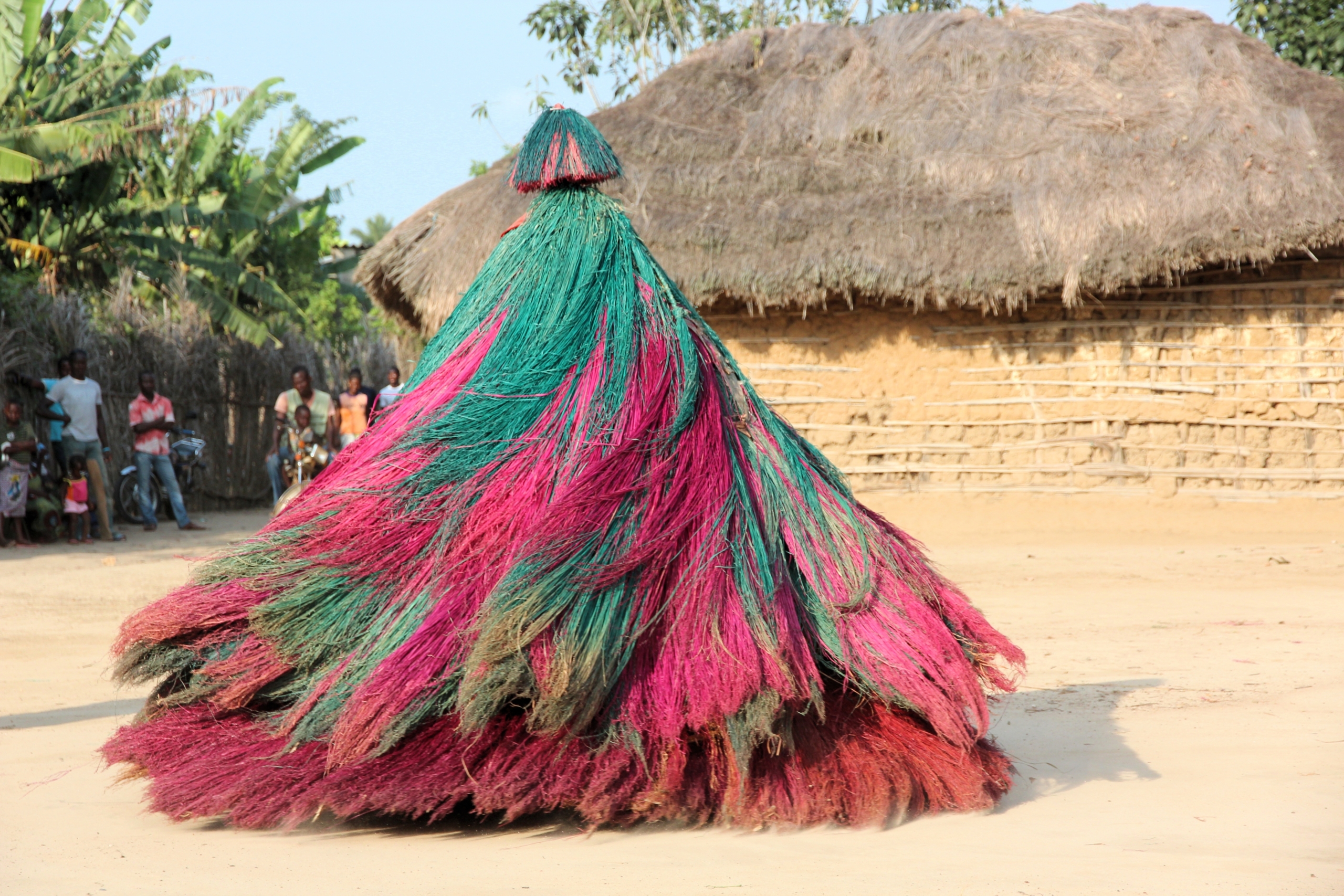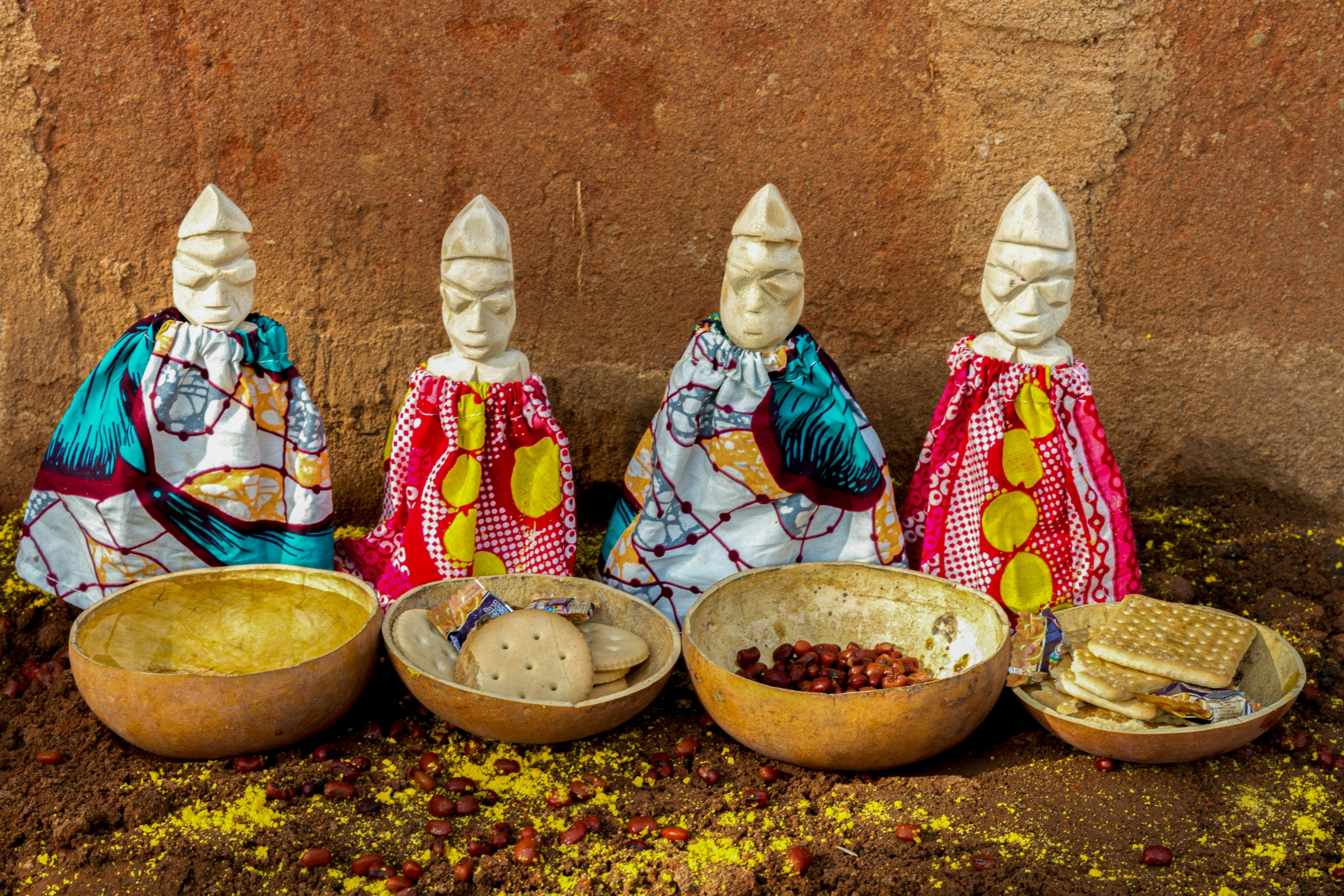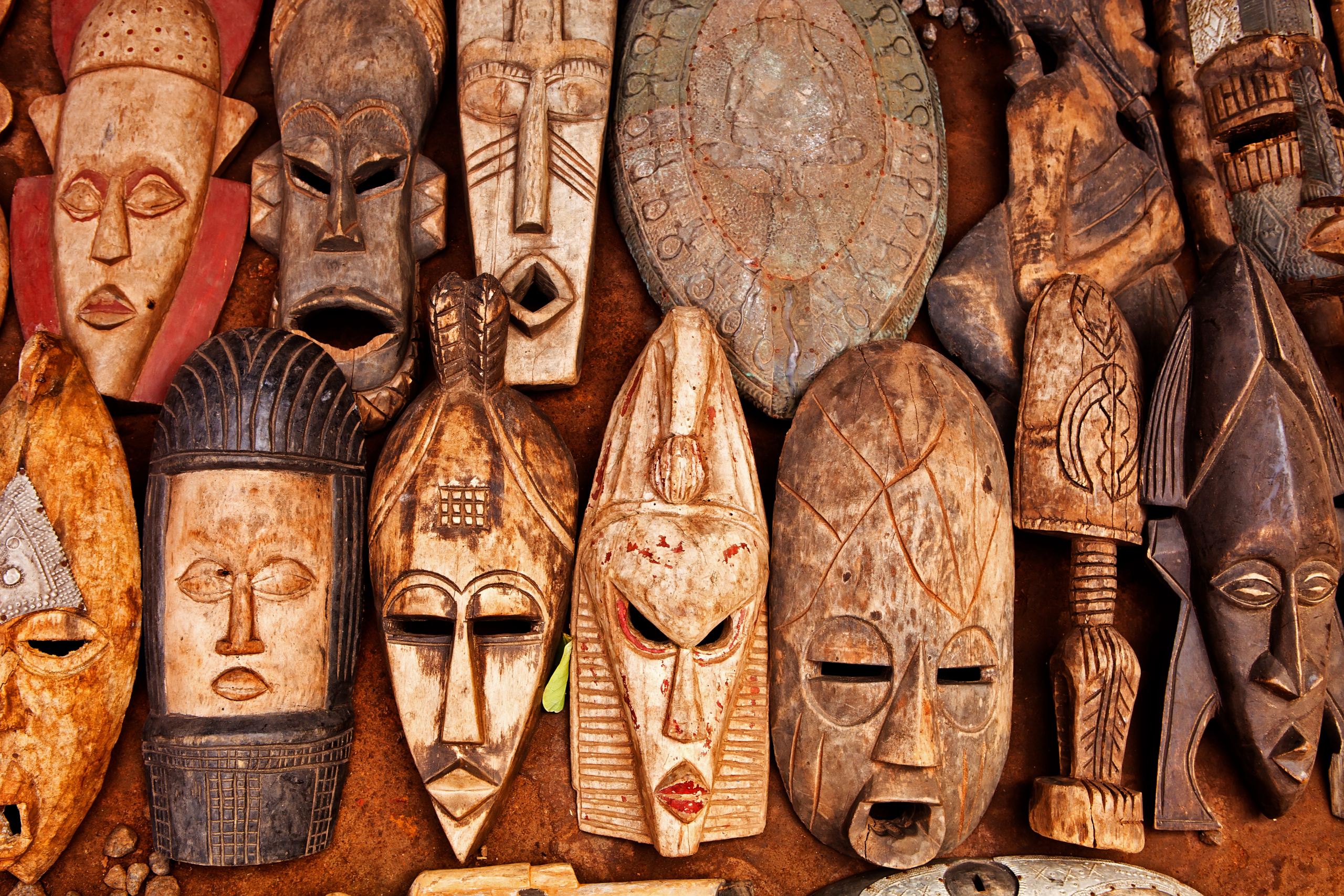
Many associate Voodoo with witchcraft and “black magic.” However, in West Africa, Voodoo (or, more accurately, Vodun) exists as an ancient aspect of the culture that unifies some 50 million people across primarily Ghana, Togo, Benin, and Nigeria. Africa’s “Voodoo” is a far cry from Western civilization’s sensationalized version of it; instead of evil spells, eerie pentagram-filled rituals, and pin-cushioned straw dolls, West African Vodun embraces calm and tranquility, a deep connection with nature, and an everlasting respect for the dead.

In the Vodun religion, the mysterious – and anonymous – Zangbeto (also called “guardians of the night”) are mediators who can communicate with both people and spirits. Through mesmerizing dances, Zangbetos protect villages against evil spirits and malicious people.
Vodun beliefs center around governing spirits, the living dead, and the power of nature. A main philosophy of the religion, according to researcher Suzanne Preston Blier, is “calmness in the face of adversity” and appreciating the tranquility of life. The primary deity, the Creator, is depicted as a gentle, forgiving, and motherly female elder who rules over lesser deities and spirits. Many Vodun ceremonies attempt to connect with different spirits and gods through physical objects, as well as use elements of nature to honor and communicate with the dead.

Offerings of food are given to idols to appease spirits and to prevent illness, bad weather, and other misfortune.
The Kingdom of Dahomey, who dominated southern Benin from the 17th–20th centuries, popularized Vodun in West Africa, but the religion was likely birthed some 6,000 years prior. When Europeans introduced Roman Catholicism to West Africa, many thought it shared similar principles to Vodun, especially surrounding the intercession of saints and angels. This led many West Africans to integrate Vodun practices into their new Christian beliefs – or to follow both Vodun and Christianity, separately. The phenomenon of combining religious beliefs or following two separate religions is a common occurrence in West Africa to this day.
As the slave trade gained traction, millions of West Africans were forcibly sold and transported to the Americas – and they brought Vodun with them. The continued intertwining of Christianity and Vodun – and the displacement of West Africans into new cultures – eventually birthed variant religions, including Haitian Vodou and Louisiana Voodoo.

Hand-carved wooden masks are used in Vodun ceremonies and rituals to symbolize different spirits, people, or things, such as an animal or a deceased ancestor.
Thought to be one of the oldest religions in the world, Vodun has been practiced for centuries and remains a treasured part of West African culture. As attempts to suppress Vodun have waned, more West Africans are celebrating their heritage through traditional Vodun ceremonies, celebrations, and worship; in fact, Benin’s annual “Voodoo Day” attracts more and more attendees every year as people feel more free to explore the religious roots of their ancestors.
If the information in this post has piqued your interest, you can learn all about Vodun and West African culture and even attend some Voodoo ceremonies, healing rituals, and dances yourself on our West Africa Discovery tour.
By using this website you are agreeing to our Cookie Policy.